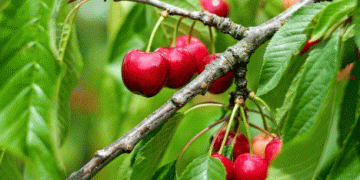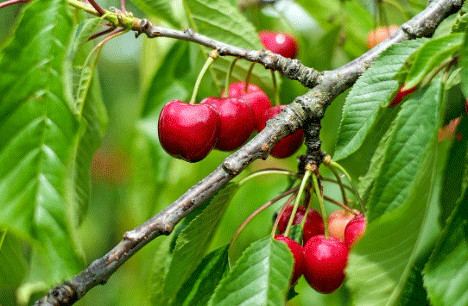The Bavarian State Office for Statistics has announced a bleak forecast for the 2024 cherry harvest, predicting a total yield of approximately 19,300 decitons (dt), which represents a 31.0% decrease from the previous year. Compared to the average yield of the past six years (30,600 dt), this projection indicates a dramatic 37.1% decline.
Several factors have contributed to this anticipated downturn. Extreme weather conditions, including frost damage in April and subsequent hail and heavy rainstorms, have severely impacted cherry production. The harvest estimations for 2024 suggest generally below-average yields, with some areas experiencing total crop failures.
The sweet cherry yield is expected to be around 16,700 dt, a 33.9% decrease from last year’s already poor harvest (a reduction of 8,600 dt). Sour cherry production is projected to reach approximately 2,500 dt, down 3.3% (or 90 dt) from the previous year, which itself was marked by significant losses.
In addition to the overall yield decline, hectare yields are also expected to drop significantly. Initial estimates for 2024 indicate an average hectare yield of 30.7 dt for sweet cherries and 42.4 dt for sour cherries. This represents a 36.4% decrease for sweet cherries (compared to the 48.3 dt average from 2018 to 2023) and a 29.3% decrease for sour cherries (down from a 60.0 dt average over the same period).
These initial estimates highlight the substantial challenges faced by Bavarian cherry growers in 2024. The final results, expected in September, will provide a more accurate picture of the season’s total yield.
For farmers, agronomists, and agricultural engineers, these projections underscore the critical impact of climate variability on crop production. The severe weather events experienced this year have not only reduced yield but have also highlighted the need for adaptive agricultural practices to mitigate the effects of such extreme conditions. Investment in more resilient crop varieties, advanced weather prediction technologies, and enhanced protective measures can help buffer against similar disruptions in the future.
Furthermore, scientists and researchers in the field must continue to investigate the long-term effects of climate change on fruit production. Understanding these patterns is crucial for developing strategies to maintain and improve yield stability in the face of increasingly unpredictable weather.
The 2024 cherry harvest in Bavaria is set to be one of the worst in recent history, with significant reductions in both sweet and sour cherry yields due to severe weather conditions. This situation calls for urgent measures to adapt agricultural practices to climate variability and enhance crop resilience. The final yield data in September will provide a clearer picture, but the current outlook emphasizes the need for proactive approaches to safeguard future harvests.































